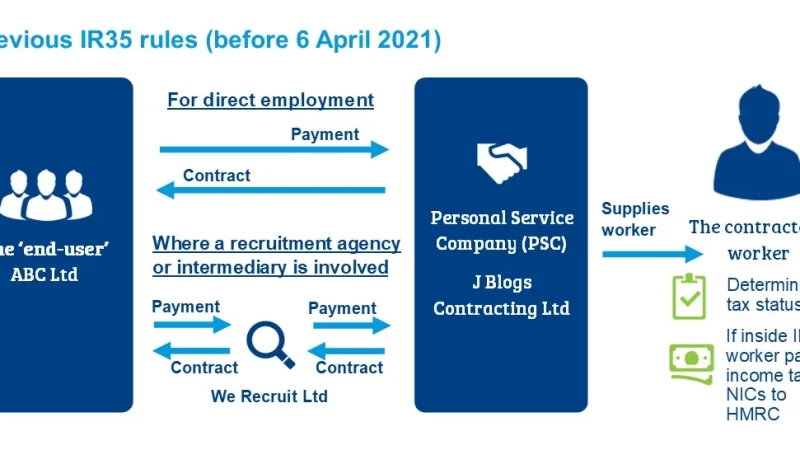The IR35 legislation has been a contentious issue in the United Kingdom, sparking debate among freelancers, businesses, and political entities. The Reform Party has taken a strong stance on revisiting and revising these tax rules. This article explores IR35, the challenges it presents, the Reform Party’s views, and what changes could mean for contractors and the economy.
Understanding IR35
What is IR35?
IR35, also known as the off-payroll working rules, is a piece of UK tax legislation aimed at preventing tax avoidance by workers supplying services through intermediaries, such as personal service companies. The rule ensures that individuals working like employees pay the same Income Tax and National Insurance as direct employees.
History and Development of IR35
Introduced in 2000, IR35 targeted “disguised employment,” where contractors avoided employment taxes by operating as limited companies. However, amendments in recent years, particularly the 2021 extension to the private sector, shifted the compliance burden to businesses, making it increasingly controversial.
Challenges Contractors Face Under IR35
Key Problems with the Current IR35 System
For contractors, IR35 creates ambiguity and financial strain. The primary challenges include:
- Complexity in Determination: Differentiating between “inside” and “outside” IR35 can be subjective, often leading to disputes with HMRC.
- Reduced Income: Being “inside” IR35 results in contractors paying higher taxes without the benefits of employment, such as sick leave or pensions.
Financial and Operational Impacts on Businesses and Freelancers
Businesses now bear the responsibility of determining IR35 status, increasing administrative costs and legal risks. This has discouraged companies from engaging contractors altogether, impacting flexibility in workforce management and stifling freelance opportunities.
Reform Party’s Stance on IR35
Proposed Solutions by the Reform Party
The Reform Party advocates a complete overhaul of the IR35 system, suggesting the following:
- Simplified Rules: Streamlining definitions of employment to reduce ambiguity.
- Fair Taxation: Aligning tax rules with employment benefits for fairness.
- Promoting Freelance Economy: Encouraging businesses to engage contractors without fear of compliance penalties.
Why the Reform Party is Advocating Change
The Reform Party views IR35 as a deterrent to entrepreneurial growth. They argue it hampers innovation, restricts labor market flexibility, and unfairly targets the freelance community, which is essential to the UK’s economic dynamism.
Implications of Reforming IR35
Economic Benefits of Overhauling IR35
A reformed IR35 could:
- Boost Entrepreneurship: Encouraging individuals to freelance without fear of punitive taxation.
- Increase Workforce Flexibility: Allow businesses to adapt to fluctuating demands more effectively.
- Enhance Productivity: By reducing administrative burdens and fostering better contractor-business relationships.
Potential Risks and Challenges of Proposed Changes
However, reforming IR35 also carries risks:
- Revenue Loss: Tax adjustments could reduce immediate government revenue.
- Loopholes: Simplified rules might unintentionally enable tax avoidance.
Public Opinion and Future Prospects
Reactions from Freelancers, Businesses, and Tax Professionals
The freelance community has largely welcomed the Reform Party’s proposals, viewing them as a lifeline. However, businesses express concerns about transitioning to yet another framework, and tax professionals warn about potential complexities in implementation.
How Likely Are the Proposed Changes to Be Implemented?
While the Reform Party’s proposals resonate with many, implementing these changes will require significant political will and a clear roadmap. The current government’s stance on fiscal stability could be a potential roadblock.
The Gig Economy and IR35: A Fragile Relationship
Examine how IR35 impacts the growing gig economy, including sectors like tech, creative industries, and transportation, where freelance work thrives.
How IR35 Differs Between Public and Private Sectors
Detail the nuances of IR35 implementation across sectors, highlighting the challenges faced by contractors and businesses in each.
The Role of HMRC in IR35 Compliance
Discuss HMRC’s approach to enforcing IR35, including compliance checks, disputes, and its impact on contractors’ lives.
International Perspectives: How Other Countries Handle Freelance Taxation
Compare the UK’s IR35 with freelance taxation policies in countries like the US, Germany, and Australia to understand potential alternative frameworks.
A Roadmap for IR35 Reform: What Needs to Change?
Lay out a step-by-step plan for reforming IR35, focusing on practical and scalable solutions to address its current shortcomings.
Conclusion
IR35 remains a polarizing issue, balancing the need for fair taxation with the interests of freelancers and businesses. The Reform Party’s call for reform highlights the challenges within the current system and opens the door to discussions on how to better support the UK’s gig economy. Whether these changes materialize depends on the political landscape and public pressure for a more equitable solution.
FAQs
1.What is the main purpose of IR35?
IR35 aims to prevent tax avoidance by individuals who operate as freelancers or contractors but are essentially working as employees.
2.Why is IR35 controversial?
IR35 is controversial due to its complexity, the financial strain it imposes on contractors, and the administrative burden on businesses.
3.What changes is the Reform Party proposing for IR35?
The Reform Party proposes simplifying the rules, ensuring fair taxation aligned with employment benefits, and promoting the freelance economy.
4.How does IR35 impact freelancers?
Freelancers deemed “inside IR35” face higher taxes while being denied employment benefits, which reduces their take-home pay and financial security.
5.Will the Reform Party’s proposals benefit businesses?
Yes, the proposals aim to reduce the compliance burden on businesses, making it easier and more cost-effective to engage contractors.
Also read: Brasilia City Tour: 9 Best Parks and Outdoor Spaces









